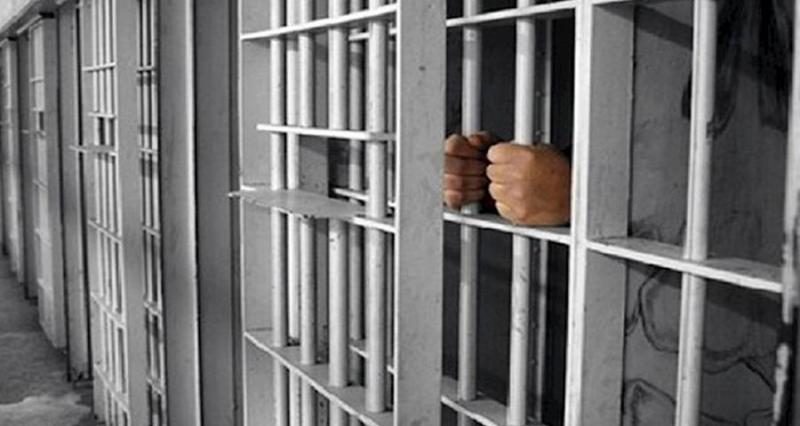The death of another inmate in one of Lebanon's prisons has brought the issue back to the forefront; the detainee Mahmoud Qattaya died in Roumieh Central Prison on Thursday evening, prompting a judicial investigation into the matter, despite judicial and security sources agreeing that the death was "due to a sudden heart attack." An security source told "Al-Sharq Al-Awsat" that the deceased was 36 years old and had been imprisoned for months on drug trafficking charges, with guards surprised to find him collapsing and losing consciousness. He was immediately examined by the prison doctor and was rushed to the nearby Dahar Al-Bachak Hospital, where he soon passed away.
The incident revived the anger among the families of prisoners, amid the indifference of political officials towards their situations, and their failure to fulfill all the promises made regarding the enactment of laws that would alleviate their suffering and fairly treat those who have been held for years without trial. MP Ashraf Rifi warned that Lebanon's prisons "will turn into graveyards and ticking time bombs."
The assistant government commissioner at the military court, Judge Hani Al-Hajjar, quickly took charge of the investigation into this incident, assigning a forensic doctor to examine the body and determine the cause of death. A judicial source informed "Al-Sharq Al-Awsat" that "initial information indicates that the death of detainee Qattaya resulted from a sudden heart attack." It was clarified that forensic evidence was commissioned to examine the body, collect samples, and analyze them in a medical laboratory to check for any toxins, noting that these procedures are routine.
Conditions in Lebanese prisons are worsening for various reasons, primarily due to overcrowding that exceeds their capacity by three times, exacerbated by the ongoing judge strike for the past five months, halting the release of hundreds, if not thousands, of detainees who deserve to be freed, as well as the slow pace of courts in issuing judgments that would also contribute to releasing hundreds, whether they have served their sentences or are eligible for acquittal.
The recent death highlighted that the prison tragedy is open to similar cases occurring weekly, with an official source following the prison file stating that this incident "is not the first and may not be the last this year." It was revealed to "Al-Sharq Al-Awsat" that "the number of prisoners who died in prisons since the beginning of 2022 reached 21, including detainees and convicts, most of whom were in Roumieh prison, compared to 16 who died last year." This increase was attributed to "multiple factors, primarily that most who die in prisons suffer from chronic illnesses even before their detention," pointing out that "most sick detainees are transferred to Roumieh prison, which contains a precautionary shelter for those with infectious diseases and others, raising the number of deaths there." The official source also acknowledged that "the decline in cleanliness, poor nutrition in prisons, and the lack of medical care for sick individuals in detention places play a contributing role."
All promises made by officials to solve the prison dilemma have been swept away, as the Lebanese parliament once again ignored the draft law for a general amnesty, which it promised to include in the agenda of legislative sessions after the recent elections. Additionally, the caretaker Minister of Interior, Judge Bassam Mawlawi, failed to include the draft law to reduce the prison term from nine months to six months on the legislative agenda, and he also failed to urge judges to apply the provisions of Article 108 of the Criminal Procedure Law, which has further exacerbated the prison crisis.
Article 108 of the Criminal Procedure Law states: "The duration of detention for misdemeanors shall not exceed two months, which can be extended for a similar period in cases of extreme necessity... The duration of detention for felonies shall not exceed six months, which can be renewed once by a reasoned decision, except for crimes of murder, drugs, attacks on state security, and felonies of comprehensive danger..."
MP Ashraf Rifi stated in a statement he issued yesterday that "the death of inmate Mahmoud Qattaya, may he rest in peace, in Roumieh prison aligns with the unprecedented phenomenon of the number of deaths among prisoners in a short period." He said: "Deaths in prisons have occurred more frequently than usual due to the unnatural overcrowding that necessitates a solution to this issue, and due to the decline in the state's medical and service capabilities."




